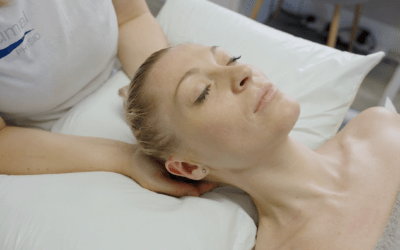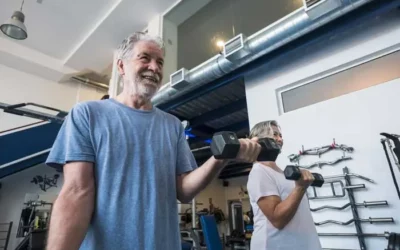Scans and ‘slipped’ discs promote unnecessary fear. Don’t fall into their trap.
We often hear people come into clinic and advise us that they’ve been told they have a “slipped disc”.
This terminology can cause a lot of fear and it is very misleading.
Let me clear this up: Disc’s NEVER move out of place, never “slip”, and are very stable resilient shock absorbing structures.
We all have disc’s in our backs, they are our natural shock absorbers. They are also a main contributor to low back pain and back pain is very common.
The discs within your spine have a soft centre and firmer outer layer. Tears can occur in this outer layer causing the inner layer to bulge and give the impression that the disc has moved out of place. These tears can heal and additional exercises can prevent further injury. Let us be clear – nothing has moved out of place and therefore nothing has to be put back in to place.
Changes within discs are normal as we age. These changes are normal, just part of ageing, such as developing grey hair or losing that speed you once had! What does this mean for me?
Scans only show something truly important in less than 5% of people with back pain. Disc bulges, disc degeneration, herniated discs and arthritic changes are prevalent in people without low back pain. A recent study of 3110 pain-free individuals were imaged in total. 50% of 40 year olds have disc bulges and no pain. 80% of 50 year olds have disc degeneration and no pain.
These findings are normal and are an indication of ageing and genetics, not predictors of pain. Discovering you have these changes in the spine can lead to fear, distress and avoidance of activity.
This means that a very small percentage benefit from MRI results and these results must link with the clinical presentation. Meaning, you should check with your physiotherapist or consultant what your MRI results mean for you and and if you really need one in the first place.
An experienced healthcare professional would usually be able to identify if a scan was necessary based on symptoms and medical history.
Only 1% of those with low back pain ever need surgery? Chances are you are in the other 99%.
Please do not just accept that you have to live with back pain or accept that you have to live with someone who is constantly complaining about back pain! Fight the fear with an individual treatment plan, working with your physio to find the cause, fix the problem and prevent issues in the future.
Call 0333 301 0205 or email treatment@optimalphysio.co.uk



0 Comments